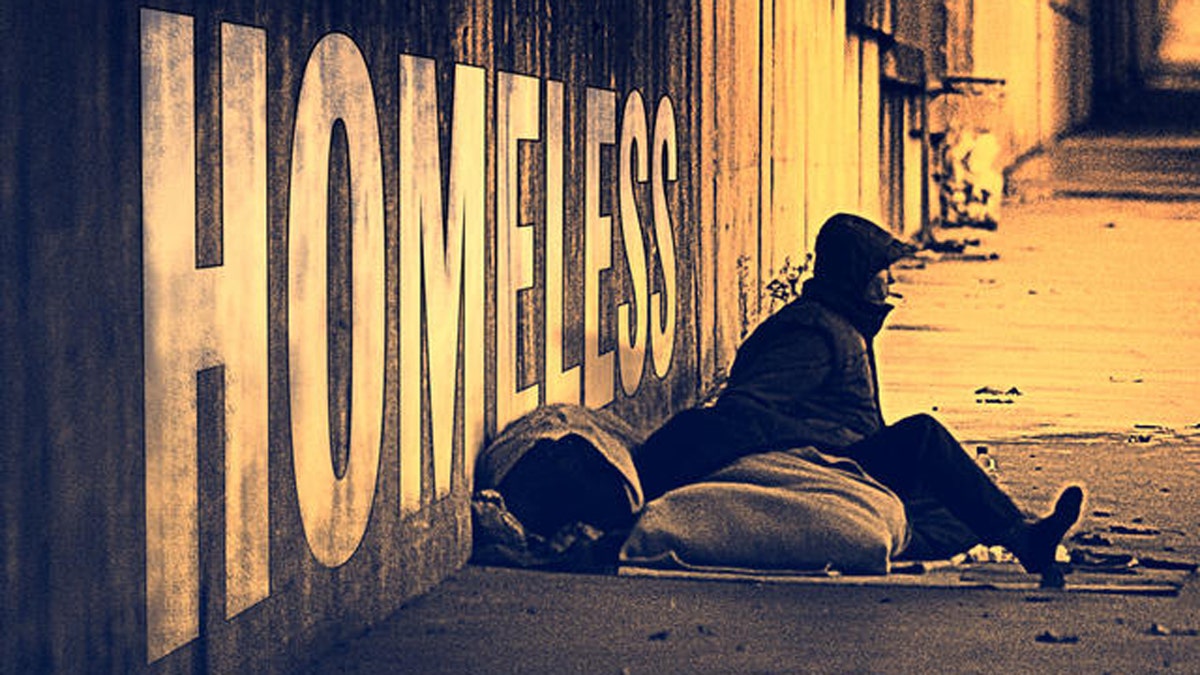
I ended up in that particular Starbucks by accident, really. I’m glad I did, because a homeless woman taught me a valuable lesson about Christmas.
It was a few weeks ago and I had just finished catching up with one of my good friends over breakfast on the east side of New York City. We started walking to his office building, and as we did we strolled past the Starbucks. It seemed like the perfect place to park myself for the next two hours and work before I had to go to the airport.
My friend and I parted ways, and I dodged the trendy business suits holding their red cups and started looking for a seat. There was one open. Yes, I thought. Winning.
Then I saw why.
Across from the open seat was a homeless man, mouth gaped open and a pea-sized amount of foamy saliva pooling at the corner of his lips. At any minute, gravity was going to win. He had his once-white socks pulled up over the outside of his sweatpants, and a tattered, black jacket with the hood pulled over the top of his head. He repositioned himself, and I caught a glimpse of days-old scruff that was clinging to remnants of what was likely someone else’s discarded meal.
I lived in New York City for six years. This type of scene isn’t new or abnormal for me. It’s life in the city. So I grabbed the seat.
I worked as the man slept. Tap, tap, tap on my keyboard. He barely flinched. People came and went. Baristas called out wrong names. Two hours later, he and I were the longest-tenured inhabitants, besides the employees behind the counter.
That’s when I caught a glimpse of an L.L. Bean-type man, a canvas messenger bagged draped over his shoulder.
“Sir. Sir! SIR!” He tried to wake the homeless man up, but nothing happened. He never touched him, just leaned in close. After a few unsuccessful attempts, he walked off.
Five minutes later, it happened again, but this time it was a small woman dressed in a Starbucks uniform. She approached the homeless man from the front, gently placing her hand on his knee.
“Sir. Sir!” His head finally moved. “You can’t be here anymore. You need to leave.”
She walked toward the man who had tried to do the same thing earlier and they began talking about inventory and product placement as they toured the store. A regional manager of some sort, I assumed.
At this point you’re probably wondering why I keep talking about a homeless man when I teased a lesson from a homeless woman. Well, here’s where she comes in.
Behind the homeless man, a disheveled woman in a grimy flannel had sidled her way up to the counter and taken a sideways seat on a stool. A red cart loaded with her possessions stood as a sentry. As she sat there, she put one elbow on the counter and rested her head on her hand, staring up at an angle like a teenage girl daydreaming about her crush.
As the man began stirring, he reached in his pocket and pulled out a yellow iPhone. It must have been charged and operational, because he did something on it for about three minutes. I could see about five sets of eyes cast glances. That’s when it happened.
“Sir. Sir.” The homeless woman from the counter was trying to get the man’s attention. He reluctantly looked up. “Would you like a cup of coffee?”
What? I thought to myself. Did I just hear that right? Did she offer to get him a coffee?
“Would you like a cup of coffee?” She asked again, a little louder but in a genuine way.
This is where I’m supposed to tell you that he graciously accepted; that he said “Merry Christmas;” that I learned the true spirit of the season is about giving not getting.
Nope.
He gave a simple, and somewhat terse, “No.” She smiled, said “OK,” and returned to daydreaming. She had a smile on her face.
And that’s when I realized I was envious of her.
See, she wasn’t offering a gift in order to make herself feel good. Sometimes what’s lost in the message that Christmas is about giving and not getting is that we still project the entitlement mentality on the former. We expect a certain reaction, a certain set of warm fuzzies to tickle us all over when we give a present, and the person opening it to light up and showers up with thanks. The homeless women offered her gift, was rejected, and still smiled. She didn’t find her worth in giving. She found it in genuinely caring for the man, which meant she wasn’t crushed when he rejected it.
She’s the opposite of Mrs. Fidget, the motherly character in C.S. Lewis’ classic “The Four Loves.” Mrs. Fidget gave to her children and husband in a manner that they despised. She did too much. She smothered them. She needed to be needed. She gave not for them, but for her.
“The proper aim of giving is to put the recipient in the state where he no longer needs our gift,” Lewis writes. “The hour when we can say, ‘They need me no longer,’ should be our reward.”
So when you give this Christmas season, don’t give with an expectation that the person receiving has to act a certain way, or that they have to meet a certain threshold of thankfulness. Don’t give because you’re looking to get something out of it. Give out of joy. Give because it’s the right thing to do. Give to honor the ultimate gift that the season is named after.
That’s what the homeless woman taught me.
